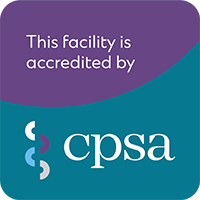Image Attribution: Gemini by Google
In our previous blog, we discussed the relationship, or lack of such in regard to the claim that people may understate their health status to obtain financial gain. Today, we will focus on whether compensation and the associated processes such as legal involvement result in poorer health outcomes. This is on the background of Alberta moving to no-fault, with suggestions that ‘tort’ (ability to sue) can be problematic for the health of people recovering from injuries sustained in a motor vehicle collision. Theoretically, and quite possibly, the process of having a lawyer and being asked to recant over and over again how the collision occurred (especially if you have posttraumatic stress symptoms); what level of pain are you experiencing; what treatment are you having and what can’t you do – i.e. the focus on ‘loss’ – quite possibly could be self fulfilling. These negative experiences may result in poorer health.
What does the evidence say?
When evaluating studies, we first need to determine what biases exist with different study designs. Studies investigating the relationships between compensation systems and health outcomes are frequently invalidated by the presence of 1) measurement error, 2) sample selection bias and confounding, and 3) reverse causality. That’s a lot of possible errors. What do these refer to?
- Measurement errors arise when the term compensation is conflated with terms such as ‘legal representation’, ‘at fault vs. no fault’ and ‘settlement received vs. not received’. The confusion arises when all these terms are equated as being a single term – that being ‘compensation’, at which point increased importance is placed in reducing financial compensation, even when financial compensation itself is not the source of ill health. This is observed in the literature, when proxy measures such as time until claim closure do not test objective health status and the actual recovery of claimants, and thus, cannot be relied upon as outcome measures1, resulting in further measurement error, especially when proxy measures (such as time until claim closure) may also reflect other phenomena (e.g. financial incentives for insurance claims managers to reduce claim duration).
- Selection bias arises when groups are compared in observational studies, such as occurs when a one of the groups is ‘legally represented’ and the other group is not. When these groups are non-random, causal conclusions cannot be made when correlations demonstrate a difference in outcomes (e.g. damages awarded) as the groups may vary due to other factors such as injury severity or income level. For example, damages awarded to those with higher income may be greater even if legal representation has no influence over damages awarded.
Of note, is that none of the systematic reviews summarizing this literature investigating the link between compensation and adverse health outcomes following whiplash injuries have actually been designed to test the effect of compensation related factors, and consequently there has been no effort to address potential confounders (other factors that might influence the outcome) in the relationship between these factors and health. - Another form of bias relates to reverse causation and assumptions that those seeking compensation have worse outcomes, versus the opposing argument that worse health outcomes may lead people to seek compensation. This is rarely acknowledged2-4. If the direction of this relationship and hence causality is uncertain, one cannot apply a causal interpretation, even if there is statistical significance and regardless of attempts to address selection bias and confounding above4. This is demonstrated in a study performed by Sterling and colleagues in Australia5. This study nicely highlighted that lawyer involvement in those with lower levels of pain and disability may result in adverse health outcomes. However, for those with moderate to severe disability, lawyer involvement did not influence outcome. Thus, the context of the relationship matters, not just whether a person seeks a lawyer to represent their interests when their health has suffered.
What Does the Literature Say About: Is Compensation “Bad for Health”?
In 2011, Natalie Spearing and colleagues published a systematic meta-review, which reviewed the systematic reviews4. And what did they find. In summary, and I quote: “Notwithstanding the limitations of the research in this field, one higher quality review examining a single compensation process and relying on primary studies using health outcome (rather than proxy) measures found strong evidence of no association between litigation and poor health following whiplash, challenging the general belief that legal processes have a negative impact on health status. Moves to alter scheme design and limit access to compensation on the basis that it is “bad for health” are therefore premature, as evidence of such an association is unclear.”
Another more recent systematic review6 states the following:
There was limited, preliminary evidence that claiming under a tort system was associated with slower recovery and that claim closure followed health recovery and limited, preliminary evidence that health recovery did not follow claim closure5,7-11. (emphasis added) The preliminary evidence on the association between hiring a lawyer and poorer recovery varies7,8,11-13. Hiring a lawyer may be related to differing compensation systems and initial symptom severity7. Further, there is limited preliminary evidence that the impact of making a claim may be dependent on the severity of the injury5.
Thus, the over-riding evidence refutes the premise that compensation is responsible for poor health outcomes, and in contrast highlights that higher levels of pain severity are responsible for lawyer involvement, with claim closure prolonged because of longer time to recover, and no evidence that health improved following claim closure.
Something to ponder on as we move away from a tort-based system to a no-fault system.
References:
1. Spearing NM, Connelly LB, Nghiem HS, Pobereskin L. Research on injury compensation and health outcomes: ignoring the problem of reverse causality led to a biased conclusion. J Clin Epidemiol 2012;65(11):1219-26. DOI: 10.1016/j.jclinepi.2012.05.012.
2. Dworkin RH. Compensation in chronic pain patients: cause or consequence? Pain 1990;43(3):387-388. DOI: 10.1016/0304-3959(90)90036-D.
3. Teasell RW. Compensation and chronic pain. Clin J Pain 2001;17(4 Suppl):S46-64. DOI: 10.1097/00002508-200112001-00011.
4. Spearing NM, Connelly LB. Is compensation “bad for health”? A systematic meta-review. Injury 2011;42(1):15-24.
5. Sterling M, Hendrikz J, Kenardy J. Compensation claim lodgement and health outcome developmental trajectories following whiplash injury: A prospective study. Pain 2010;150(1):22-8.
6. Shearer HM, Carroll L, Cote P, et al. The course and factors associated with recovery of whiplash-associated disorders: an updated systematic review by the Ontario protocol for traffic injury management (OPTIMa) collaboration. European Journal of Physiotherapy 2020;23(5):279-294.
7. Cassidy JD, Carroll LJ, Cote P, Lemstra M, Berglund A, Nygren A. Effect of eliminating compensation for pain and suffering on the outcome of insurance claims for whiplash injury. N Engl J Med 2000;342(16):1179-86.
8. Casey PP, Feyer AM, Cameron ID. Associations with legal representation in a compensation setting 12 months after injury. Injury 2015;46(5):918-25. DOI: 10.1016/j.injury.2015.01.003.
9. Spearing NM, Gyrd-Hansen D, Pobereskin LH, Rowell DS, Connelly LB. Are people who claim compensation “cured by a verdict”? A longitudinal study of health outcomes after whiplash. J Law Med 2012;20(1):82-92.
10. Kasch H, Bach FW, Jensen TS. Handicap after acute whiplash injury: a 1-year prospective study of risk factors. Neurology 2001;56(12):1637-43.
11. McLean SA, Ulirsch JC, Slade GD, et al. Incidence and predictors of neck and widespread pain after motor vehicle collision among US litigants and nonlitigants. Pain 2014;155(2):309-321. DOI: 10.1016/j.pain.2013.10.016.
12. Casey PP, Feyer AM, Cameron ID. Associations with duration of compensation following whiplash sustained in a motor vehicle crash. Injury 2015;46(9):1848-55. DOI: 10.1016/j.injury.2015.06.018.
13. Casey PP, Feyer AM, Cameron ID. Course of recovery for whiplash associated disorders in a compensation setting. Injury 2015;46(11):2118-29. DOI: 10.1016/j.injury.2015.08.038.





